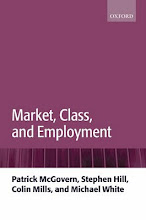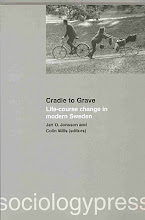November 6th will soon be upon us. That is the date upon which UCU members have voted to commence industrial action over the latest round of changes to their pension arrangements. Initially it will be action short of a strike involving a refusal to take part in assessment related activities.
My feeling is that this is going to be a very unpleasant dispute with a good chance of escalation into an all out strike. Personally I'd rather not be involved in it. But I don't see any alternative, other than for employees to simply say and do nothing as the employers take away up to 25% of the pension that they were encouraged to believe they would get when they entered the profession. I don't understand how anyone with a modicum of self-respect could do that.
In essence the employers have presented their proposals as a fait accompli. They have the voting strength on the USS Board to simply impose their will. Given this fact it is not surprising that they are not willing to negotiate. They are also apparently not willing to discuss or even in some cases reveal the details of the assumptions they have made in their projections of the scale of the USS deficit. Employees have to like it or lump it even when it is revealed that some of these assumptions are absurd (you can translate that as chosen to support the course of action they are committed to).
At the root of the problem is the current yield on gilts. USS wants to reduce future risk (to the employers) by gradually shifting the balance of its holdings from stocks to government securities. In an era of 'quantitative easing' yields on gilts are currently negative in real terms. If you want to make the size of the funding gap look scary then this is an excellent time to assume that the current state of affairs will continue into the future. It also helps if you assume that wage growth will be twice the historical average.
It seems obvious to me and many other colleagues that the employers as a whole are not acting in good faith. To be fair, some employers - and my own is one of them - have questioned the figures and have requested more transparency but I doubt this will make much difference.
What UK universities can or cannot afford in terms of pension arrangements for their staff is not ultimately determined by the market for the simple reason that their income is not, for the most part, determined by the market. It is a matter of politics, argument and discussion rather than technical imperatives.
In all industrial disputes people suffer, that is regrettable but unavoidable. It is what happens when negotiation and compromise are unilaterally abandoned. It is highly likely that some testosterone fueled employers will seek to impose punitive sanctions on staff who take action short of striking. Most likely this will take the form of refusing to pay any salary at all to those that refuse to perform any part of their contractual duties.
Pinsent Masons have been advising the employers on the legal aspects of their likely responses to industrial action. You can read their advice at the bottom of
this document. It makes fascinating reading.
Part of their opinion reads as follows:
"...one crucial factor for the total withholding of pay is that the employer must tell the employee that he/she is not expected to attend work if he/she is not prepared to undertake his/her full duties."
Thus if an employer withholds 100% of an employee's salary because of their participation in an assessment boycott and then claims in court that their attendance at their place of work and the performance of all their other duties was purely voluntary, they are unlikely to get away with it, unless they can show that they explicitly instructed the employee to stay away from work and desist from performing all their duties.
So the price of punitive sanctions is likely to be escalation of the dispute. In effect the employers will be forced to declare a lock-out of part of their workforce. Given the number of hot headed macho managers ensconced in Senate Houses around the country you will appreciate why I think this dispute will become very unpleasant.








